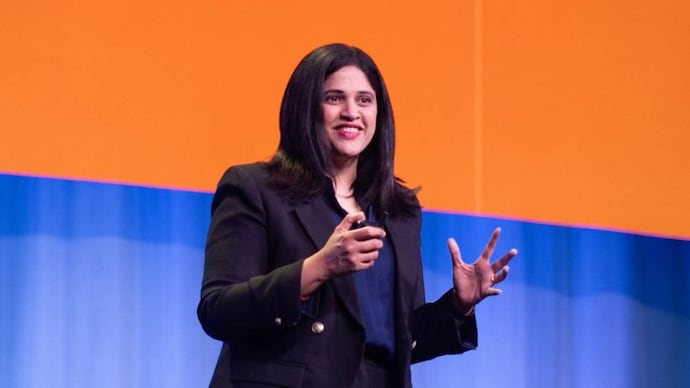Microsoft ExEC says coding is not dead after 6,000 trimmed and AI is writing 30 percent code for the company.
The head of Microsoft says that while the method of coding has developed, learning to code is more valuable than ever. Recently in a podcast, Aparna Chenpragada highlighted that AI is not replacing software engineers.
Listen to the story

In short
- Microsoft Chief believes that even if the method of coding has changed, learning for the code is still longer
- Aparna Chennapragada claims that AI is not to change software engineers here
- Recently in the Le-off Wave, the company has given a pink slip to 6,000 employees.
While some are ready to announce the death of coding at the age of artificial intelligence, Microsoft’s experience and equipment’s Chief Product Officer, Aparna Chenpragada, strongly disagree. In a recent appearance on Lenny’s podcast, Chenpragada pushed behind against the notion that computer science was getting irrelevant, insisting that learning the code is more valuable than ever, even if we are changing the code. It comes at a time when Microsoft has closed 6,000 employees and urged its engineers to increase the use of AI tools.
Microsoft chief thinks that coding is not dead
“Many people think about this,” Oh, don’t be disturbed by studying computer science or coding, “and I just disagree fundamentally,” Chenparagada said. “If anything, I think we always have high and high layers of abstraction in programming.”
He said that the AI is not replacing software engineers, but is becoming part of the natural development of software development instead, the latest in a long history of making the code code more accessible and high-level. “We no longer do programs in the assembly. Most of us do not even perform programs,” he explained. “And then you are high and high layers of abstraction. So for me, there will be ways that you will tell to the computer what to do, it’s okay? It will be only at the higher level of abstraction, which is great. It is democratic.”
Chenpragada admitted that the roles could be shifted over time, suggesting that tomorrow’s engineers could act like “software operators” compared to traditional developers, but rejected the idea that the main skills of computer science would disappear.
“There will be an order of more software operators,” he said. “Instead of self -suese, we will probably have ‘SOS’, but this does not mean that you don’t understand computer science. It’s a way to think, and it is a mental model. So I completely disagree, ‘Coding is dead.”
Engineers were not discussed. Chenpragada also weighed on the changing role of project managers, which are feeling the pressure of Big Tech’s “Great Flirt” – widespread trimming of middle management layers in tech companies.
According to him, the project managers are not going anywhere, but they will need to adapt. AI enabled ideas and growth of prototypes means that project managers should accelerate their curatorial instinct.
“In some sense, if you see it, the supplies of ideas and prototypes are going to increase a huge increase, which is very good,” he said. “It enhances the floor, but it also increases the roof. In some sense, how do you break in these times? You have to make sure that it is something that rises above the noise.”
He said “taste manufacturing and editing” that whatever he has said, emphasizing his growing importance-to find the ability to filter through a huge amount of output that is really valuable. He said that this innings has already impressed how the teams work, he noted. Chenpragada has seen the teams less relying on managerial gatekeepers, with reducing obstruction to enter for rapid use with AI.
Microsoft hires 6,000 employees
While the Microsoft chief was seen claiming “AI, not replacing software engineers” two days ago, Microsoft closed 6,000 employees. It is no secret that Microsoft has been one of the top big technical companies to laying thousands of employees.
A recent wave of global trimmed has affected around 6,000 employees, but a close view reveals a Stark and disturbing pattern. According to internal data reviewed by Bloomberg, there were more than 40 percent of the software engineers kept in the state of Washington, who rapidly questioned the future of the human coud in a company that embraced AI.
A case of Bindu is Jeff Hulas, a Microsoft Vice President who oversees the 400-person engineering team. As information reported, Hulls encouraged its engineers to increase their use of open-operated equipment, which aims to generate up to 50 percent of its code through AI, which was above the company’s specific 20–30 percent benchmarks. A few weeks later, many of the same engineers were shown the door. The time is unstable: Do these developers, in fact, manufacture devices that will eventually displace them?
CEO Satya Nadella has been vocal about the role of AI in changing productivity in Microsoft, proudly saying that in some projects, almost one-third code is now AI-renovated. But for engineers caught in the time of retrenchment, those advances seem more like corporate trade-bands than a technical victory.
Unlike Chenpragada’s public assurance that project management roles would be safe at AI’s age, Microsoft’s ax did not leave them either. Employees in Excise Management and Technical Program Management were some of the hits involved in the AI initiative.